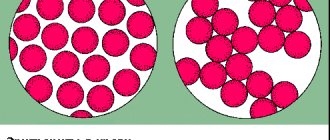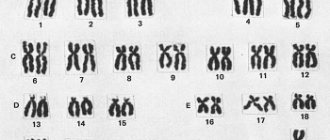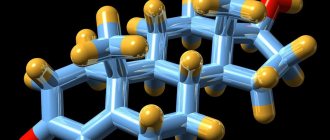Prevention of alcoholism
Alcohol... Almost all of us drink alcohol, some very rarely, exclusively on New Year's or birthdays, and some more often.
And rarely do any of us think about the toxic effect of alcohol on our body, as well as the consequences of its use. Alcohol is a strong psychotropic substance that affects the human psyche and behavior. In small doses, alcohol causes excitement, manifested in an increase in mood, a feeling of joy, and a desire to have fun, but in large doses it leads to severe depression of the brain.
According to statistics, the majority of people who died from external causes, injuries and poisoning were intoxicated at the time of death.
How does alcohol affect internal organs?
Alcohol destroys the liver
(the main function of the liver is to neutralize all substances that are absorbed in the stomach and intestines): as a result of the constant toxic effects of alcohol, inflammation of the liver occurs - alcoholic hepatitis, then a large number of liver cells die and cirrhosis develops. Liver cirrhosis is one of the common causes of death in patients with alcoholism.
Alcohol damages the pancreas
, causing acute as well as chronic pancreatitis. Patients with acute pancreatitis are hospitalized urgently, as surgical intervention is often required to save the patient’s life.
Alcohol damages the heart
, causes arrhythmias, arterial hypertension, disrupts metabolism in the cells of the heart muscle, while some of the cells die and myocardial dystrophy develops (reduction in heart weight).
Alcohol reduces immunity
(the body’s ability to protect itself from infections), so drinkers often suffer from pneumonia, purulent, and infectious diseases.
Alcohol causes skin changes
. Everyone knows the “red noses of alcoholics.”
Alcohol damages the peripheral nervous system
. This is manifested by the characteristic “gait of alcoholics,” in which there is an uncertain slow gait, staggering, and trembling of the fingers.
Alcohol leads to impotence
, to damage to germ cells, as a result, children are born with various disorders in physical and mental development, with various internal and external deformities.
Personality degradation
Perhaps the most acutely felt consequences for those close to an alcoholic are negative changes in his personality. Alcoholism can indeed lead to severe personal degradation, which is manifested by the following symptoms.
Extreme degree of untidiness.
One of the signs and, at the same time, consequences of alcoholism is complete indifference to one’s own appearance and sanitary and hygienic standards. An alcoholic may not change his underwear and clothes, take a shower, or cut his nails for several weeks. These “conventions” do not matter to him, and comments from others regarding the unpleasant odor only cause outbursts of irritability and aggression in the patient. The alcoholic also loses indiscriminateness in sexual relations and often chooses a partner of the same low social level.
Loss of moral values.
What seemed unacceptable to a person before the onset of addiction (betrayal, theft, lies, etc.) becomes natural with alcoholism. An alcoholic, without any doubt, is ready to cross almost any moral boundaries, without realizing that by doing so he is causing harm to others or breaking the law.
"Alcohol humor"
The loss of moral principles is often preceded by a so-called flat, tactless sense of humor. An alcoholic can be entertained by scenes of cruelty; he is often amused by observing situations with an immoral component or his own participation in them.
How does alcoholism develop?
There are three stages of alcoholism.
The first is the stage of mental dependence.
At this stage, it becomes habitual for a person to drink alcohol in order to forget about troubles and adversities, facilitate contact with others, and relax. A person is constantly looking for a reason, appropriate company, to drink. Control over the amount of alcohol consumed is lost: once a person starts drinking, he cannot stop and reaches a state of severe intoxication. In addition, at this stage, a person’s threshold of sensitivity to alcohol decreases, that is, in order to achieve the desired level of intoxication, he needs a dose 2-3 times larger than before. The gag reflex, which is the body’s defense mechanism during alcohol poisoning, disappears. When a person gets drunk, he loses control of himself, often commits reckless acts, and later cannot remember what happened to him the day before. After alcohol abuse, sleep deteriorates, after drinking, the mood deteriorates, sweating, palpitations, and sometimes hand trembling are noted.
The second is the stage of physical dependence.
Regular alcohol abuse leads to changes in the biochemical processes of the body, as a result of which the regular intake of alcohol into the body becomes necessary for its normal functioning. At this stage, signs of an alcoholic hangover appear and become established. A person, being in a state of hangover, experiences many unpleasant sensations - headache, nausea, sweating, palpitations, anxiety, trembling fingers. In order to alleviate the condition, a person drinks alcohol again - gets a hangover.
From the moment a hangover appears, a person is terminally ill. The only measure that can help stop the disease is a complete abstinence from drinking alcohol in any form.
This can be repeated for several days - 3 days or more. Binges occur. In the absence of alcohol entering the body, a person experiences mental disorders, headache, thirst, loss of appetite, muscle tremors, irritability, and aggression.
The third is the stage of personality degradation.
A person becomes indifferent to family and friends, neglects the most basic rules of morality and ethics, and is indifferent to his behavior. His memory is deteriorating and his intelligence is decreasing. At this stage, people begin to drink “whatever”, as long as the liquid contains alcohol. Drunkenness is constant (daily) in nature or is expressed in binges that stop due to a sharp deterioration in physical condition and often require medical care, without which a person can die. At this stage, the changes that have occurred in the internal organs are irreversible. Alcohol completely destroyed their normal functions.
Consequences of drinking alcohol
Ethyl alcohol is an absolute poison, provoking all the negative consequences of drinking alcoholic beverages for the human body. It dissolves well in water and fats, and is able to penetrate into any cell, tissue or organ. The destructive effect of alcohol on the human body is manifested by a whole “bouquet” of disappointing diagnoses:
- heart attack and hypertension;
- alcoholic gastritis;
- hepatitis and chronic pancreatitis;
- decreased fertility;
- muscular dystrophy;
- skin diseases.
The most severe form of alcohol intoxication is delirium tremens. For it to occur for the first time, a person must drink alcohol for an extended period. Usually we are talking about a classic binge. Delirium tremens is dangerous because even with proper drug treatment, it has a fatal outcome of 1-2%. Without qualified assistance, the rate rises to 20%. This form of intoxication is characterized by hallucinations, chills, high blood pressure, and rapid pulse.
Detoxification and treatment of alcohol addiction in general are activities that must be carried out in a specialized clinic. Therapy at home is out of the question. This is due to the fact that giving up alcohol is extremely stressful for the body. Appropriate medications and manipulations help to cope with it. There are many cases where a person suffering from alcoholism decided to fight his addiction at home and died. In the clinic, such danger is minimal, since each patient is monitored around the clock.
Alcohol without harm to health: myth or truth?
There are many opinions about the dangers of alcohol, but sometimes you can hear arguments in favor of its use. Some people claim that alcohol helps cleanse blood vessels and lower blood cholesterol levels. Alas, this is an absolute fallacy. The breakdown products of alcohol are directly involved in the destruction of the walls of blood vessels, cause their spasm, and significantly increase the risk of heart attack and stroke.
Alcohol treatment is a technique that has not received unequivocal approval from official medicine. But in WHO practice there is such a term as “standard dose”. It is 10 grams of pure alcohol: this is what is contained in 150 ml of dry wine or 50 ml of strong drinks. By drinking alcohol equivalent to this dose, a person does not increase the risk of consequences for his health. It is believed that alcohol in the specified amount does not harm the body, but there is no talk of any benefit either.
The only way to avoid the negative effects of alcohol on the body is to stop drinking altogether! If consumption has exceeded all permissible limits, then treatment for alcohol dependence should begin immediately. There is no innate need to drink alcoholic beverages. Therefore, this problem can be overcome. The main thing is to recognize that you or a loved one have an addiction and promptly seek qualified help.
How to avoid becoming an alcoholic?
If you do not have signs of alcoholism, but you drink alcohol often and in large quantities, decide to reduce the amount of alcohol and reasons for drinking. Do not let the situation get out of control if you value your family, work, and your health.
- Avoid companies where large amounts of alcohol are consumed.
- Control the amount of alcohol you drink.
- Do not hesitate to refuse if you are offered a drink.
- Learn to relax in other (non-alcoholic) ways: engage in sports, creativity, tourism or other enjoyable activities.
If you or someone close to you has signs of alcoholism, consult a doctor immediately!
It is very difficult to cope with the disease without the help of a doctor. Remember: to cope with this serious illness, modern treatment methods and the active desire of the patient himself to get rid of the disease are necessary!
How much alcohol can you drink without harming your health?
We will immediately disappoint all lovers of strong drinks. Dr Lars Moller, head of the WHO Regional Office for Europe's program on alcohol and illicit drugs, says there is no safe dose of alcohol .
Lars Moller also says that there is a level of consumption at which harm is minimal, but WHO does not give clear values, since alcohol is associated with many diseases and it is better to avoid it altogether.
It is unlikely that you are satisfied with this answer, because you are most likely interested in specific numbers. Scientists from Germany gave a clear answer. As RIA Novosti writes, with reference to Focus magazine, the daily dose of alcohol for a woman should not exceed 12 grams of pure alcohol, for men this figure should not exceed 24 grams.
In other words, for women the permissible daily dose is equal to a glass of wine or 0.3 liters of beer. Men, on the other hand, can afford no more than two glasses of wine or one glass of strong drink (cognac or vodka), or no more than 0.6 liters of beer per day.
In addition, the Ministry of Health recommends going without alcohol at least two days a week.
Despite all the recommendations, remember one simple rule: the less alcohol you drink, the better .
Where to go for help?
To help patients with alcoholism, as well as other types of drug addiction, there are specialized institutions in our country - drug treatment clinics. Each dispensary serves a specific area. People living in the area can go there on their own or with the referral of other specialists. They and their relatives will be provided with:
- advisory assistance
- examination
- treatment
Doctors working in dispensaries conduct examinations of patients, medicinal treatment and psychotherapy, and bring patients out of a hangover. Physiotherapeutic procedures are widely used.
Content:
- What is alcoholism and its consequences
- Diseases of internal organs caused by alcoholism
- Alcoholic psychoses
- Personality degradation
- Treatment of alcoholism and its consequences
Alcohol addiction is a chronic progressive disease. Constant alcohol intoxication leads to destructive changes in organs. In patients, the nervous system is affected and the psyche suffers. If this disease is not cured, the patient will inevitably face many severe pathologies leading to premature aging and early death. To avoid the consequences of this disease, you should undergo therapy as early as possible and begin to lead a sober life. The most important thing is to show the will and desire to recover.
Alcoholic psychoses
Long-term poisoning of the nervous system eventually leads to disruption of the exchange of neurotransmitters. Their insufficiency in the synapses of some fibers and cells, their excess in others leads to an imbalance and chaotic transmission of impulses. These processes intensify during the period of abstinence against the background of the end of the binge. It is at this time that the most dangerous consequences of alcoholism most often develop. They are called acute psychoses. The most common among them is delirium tremens .
Delirium in a patient manifests itself:
- Increasing anxiety, anxiety.
- Increased heart rate and breathing.
- Sweating and hyperemia of the skin.
- Vivid hallucinations of a frightening nature.
- Delusions of persecution, jealousy.
Symptoms increase over 7-8 days, then undergo a reverse development. If you do not provide help to the sick person, then delirium tremens is often accompanied by cerebral edema , which often ends in death.
In addition to acute psychoses, patients with advanced stages of alcohol dependence suffer from chronic forms of these complications. They can last for months.










